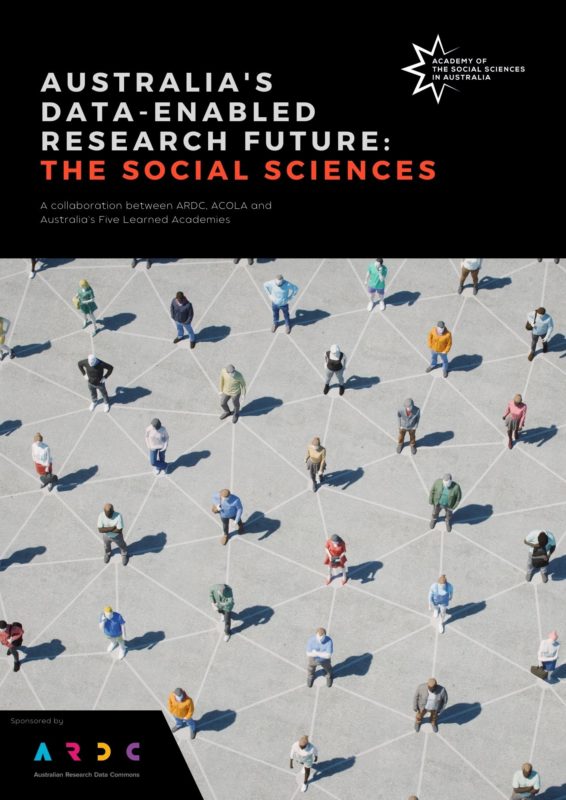Australia's Data-Enabled Research Future:
The Social Sciences
The aim of this project was to identify recent developments, opportunities, and priority gaps in Australia’s social science research data ecosystem. This ecosystems includes Research Data Commons (large-scale data storage and computation infrastructure along with analytic tools and interoperability protocols) as well as the workforce and governance arrangements required to enable research data and the associated infrastructure to be effectively developed and used.
Importantly, this report builds on the ARDC’s recent Humanities, Social Sciences and Arts Research Data Commons report (2020), and adds the perspectives of over 160 social science stakeholders who participated in roundtables or completed a survey for this project. It focuses on:
- What a fully-developed research data ecosystem could deliver for the social sciences and to Australians more broadly
- Critical issues that need to be addressed in order for a fully-developed Research Data Commons to operate effectively in the social sciences
- Priorities for investment over the next 5 to 10 years.
Aspirations
Stakeholders identified the following potential benefits from a fully-developed Research Data Commons in the social sciences:
- More effectively applying the best available data and research tools to address pressing social problems
- Embedding social systems thinking into research and policy analysis
- Opportunities to give value back to communities through increased provision of data-enabled, community-oriented online services and applications.
Current challenges
The development and implementation of large-scale Research Data Commons is still at an early stage in the Australian social sciences. Stakeholders identified issues needing to be addressed as follows:
- Research Data Infrastructure. Adapting traditional qualitative research methods to work with big data and related capabilities; increased funding to build advanced social research capabilities (and underpinning infrastructures), and contributing to the rapid deployment of the Data Availability and Transparency Act 2022 while readying the sector (our people and facilities) to continue to produce value in a future characterised by data volume rather than scarcity.
- Workforce. A need to increase awareness and understanding of the use and benefits of Research Data Commons infrastructure; to embed data literacy into university curricula and researcher training across all social science disciplines; and to introduce better mechanisms and incentives to utilise big data in social research, policy and translation.
- Governance. Ensuring effective policies and protocols for access, privacy, ethics and stewardship of research data, as well as necessary funding mechanisms. This includes particular governance and sovereignty issues that need to be acknowledged and addressed with respect to Indigenous data.
Priorities
The report concludes with seven priorities for action:
- Developing a Decadal Plan for social science research infrastructure
- Ensuring appropriate funding for Indigenous data commons and governance
- Advocating for increased investment in advanced research capabilities for the social sciences
- Ensuring greater coverage of social science research priorities in future National Research Infrastructure Roadmap
- Scaling up qualitative social science methods for big data
- Fast-tracking deployment of the Data Availability and Transparency Act 2022
- Future-proofing social science Research Data Commons.
Expert Steering Group
- Stuart Barr
- Steven McEachern
- Sarah Medland, FASSA
- David Kalisch, FASSA
- Sarah Pink, FASSA
- Maggie Walter, FASSA
- Mark Western, FASSA.
About this project
Australia’s Data Enabled Research Future is a collaboration between Australia’s Learned Academies, the Australian Council of Learned Academies (ACOLA) and the Australian Research Data Commons (ARDC). The project combined the leadership and strategic insights of the Academies and ACOLA with the national data infrastructure expertise of the ARDC. The project was an investment in the national data policy and planning infrastructure aimed at improving delivery of excellent data-enabled research for all domains of the Academies.
Read the synthesis report and joint media release.
Other Academy reports can be found via the links below:
Keep me informed
Leave your details, or contact us via policy@socialsciences.org.au:
